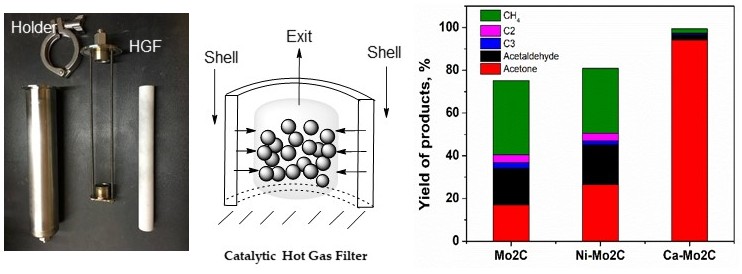Carboxylic acids such as acetic acid and propionic acid have been investigated as representative components for fast pyrolysis (FP) bio-oil upgrading. Selective catalytic conversion of carboxylic acids can enhance bio-refinery processing economics through catalyst preservation and process intensification. Various metal-doped molybdenum carbide bead catalysts have been synthesized and developed in this work. Our aim is to enable selective conversion of carboxylic acids. In the case of acetic acid conversion, calcium doped Mo2C beads offer the highest yield of acetone ~96% at 450 °C among undoped and Ca or Ni doped catalysts. By comparing hot gas filter with and without Ca-Mo2C catalyst tested with real FP vapors, the former showed a 36.7% reduction of acetic acid, a 37.5% reduction of small ketones in aqueous phase, and a ~50% reduction of methoxies (methoxy phenols and methoxy aromatics) in organic phase. The conversion resulted in the formation of more long chain chemicals in the organic phase, which are more amendable for downstream upgrading.

